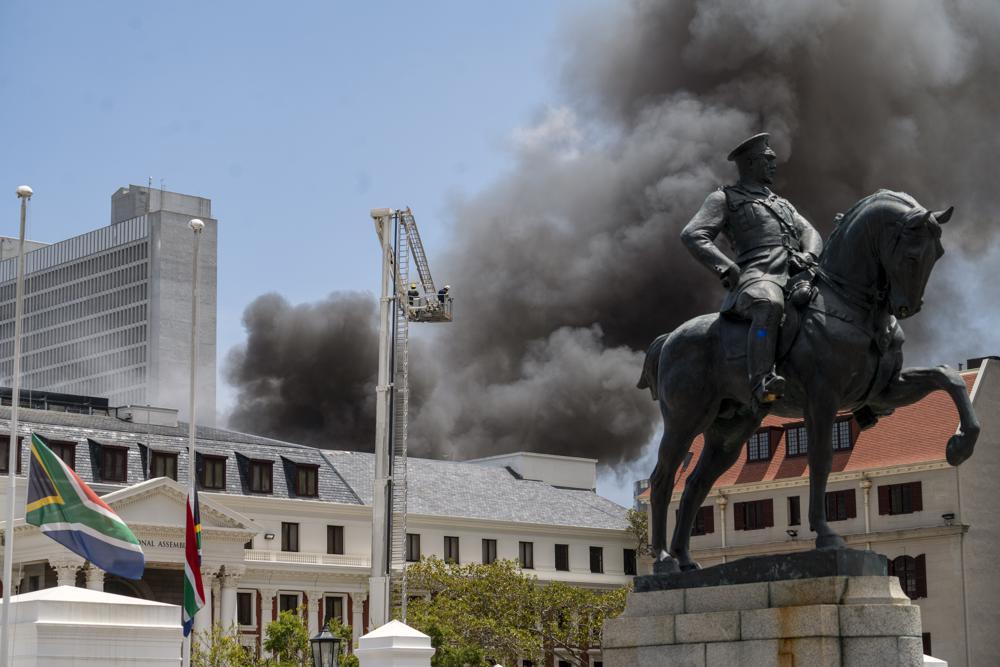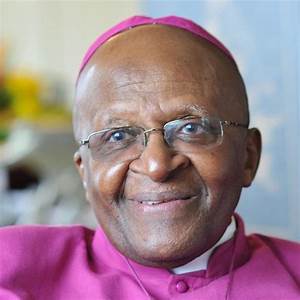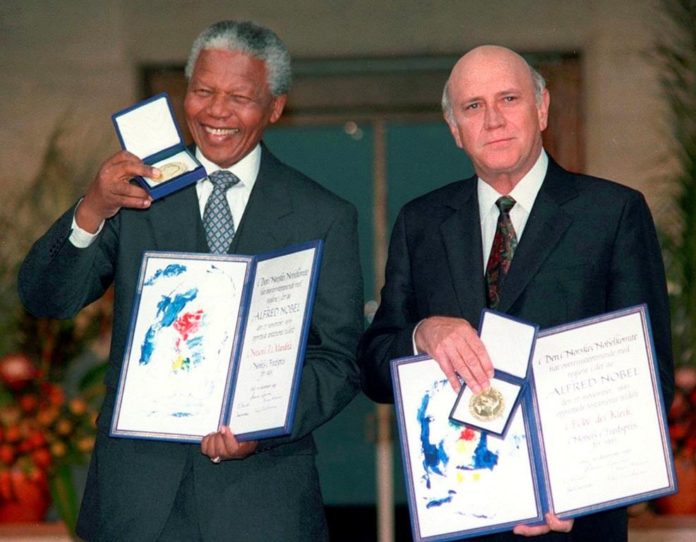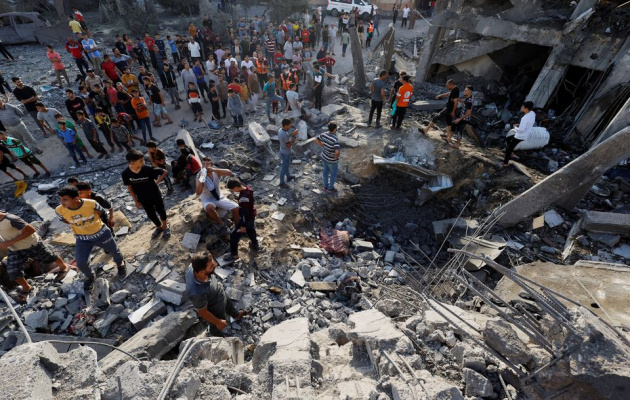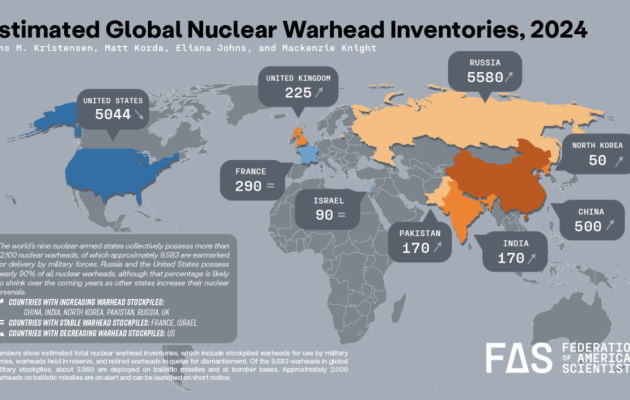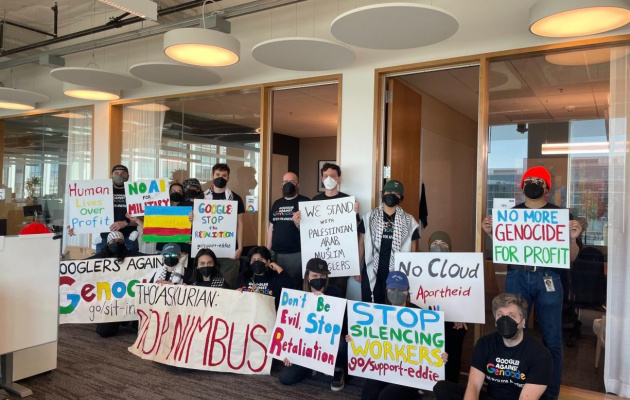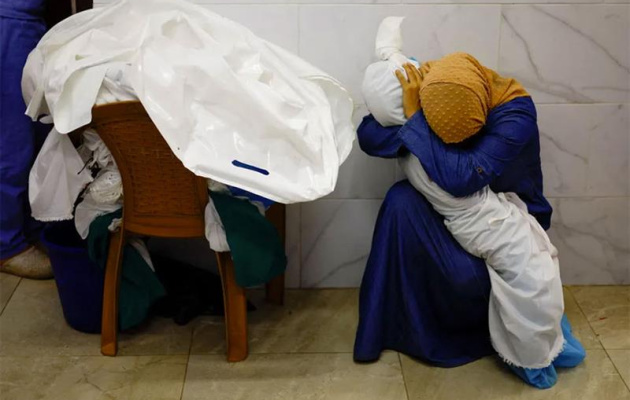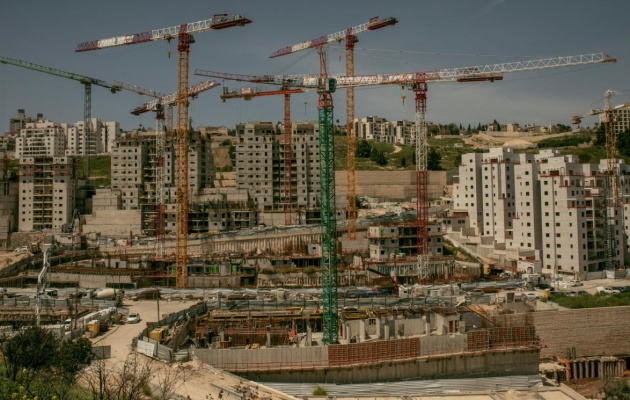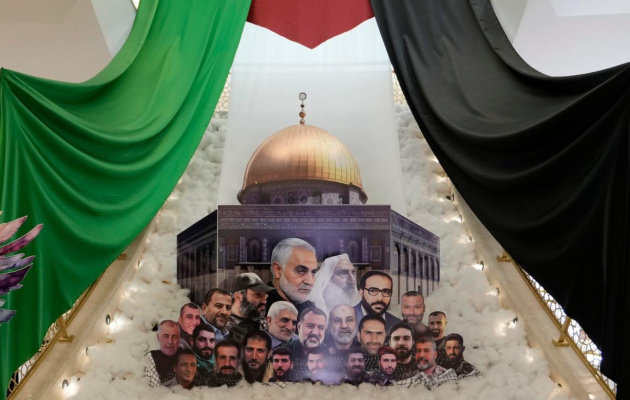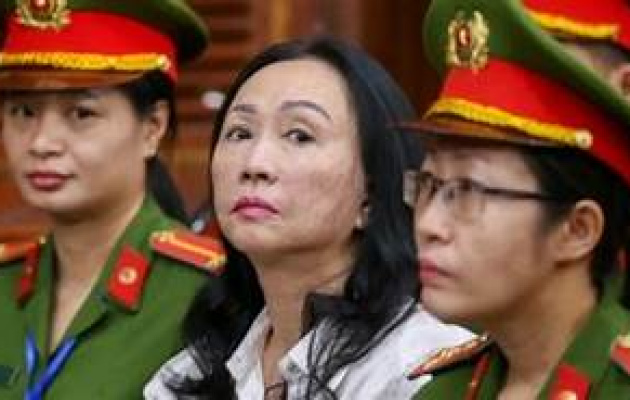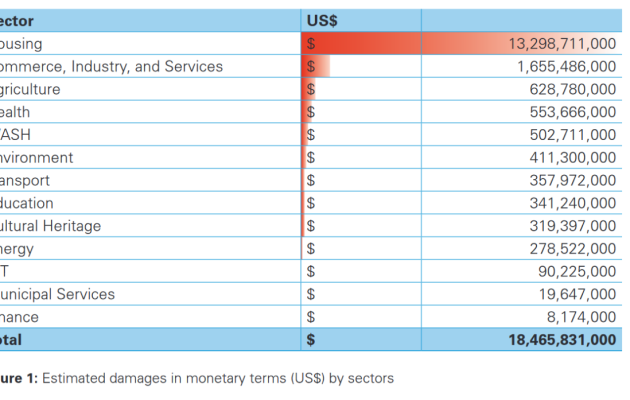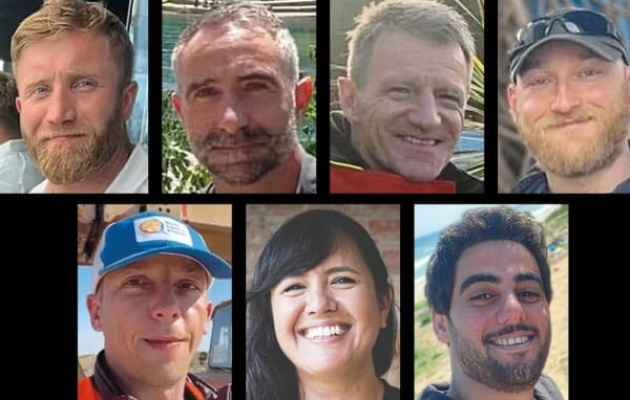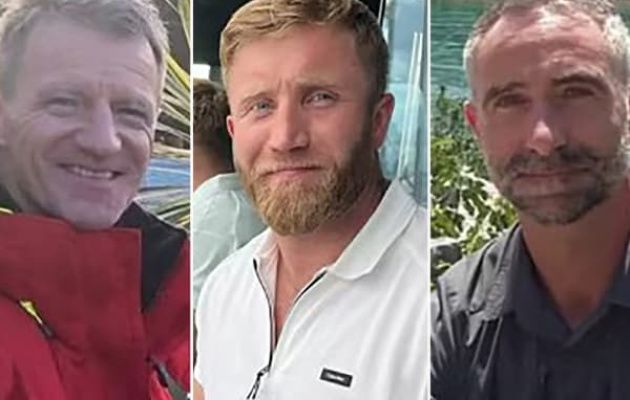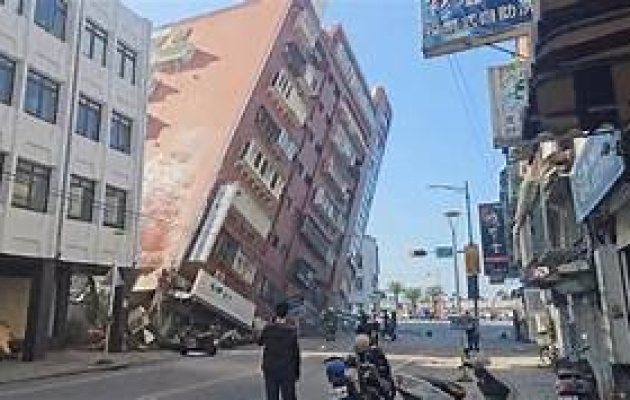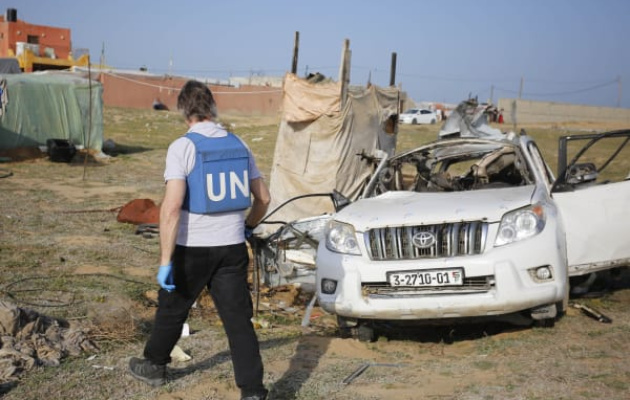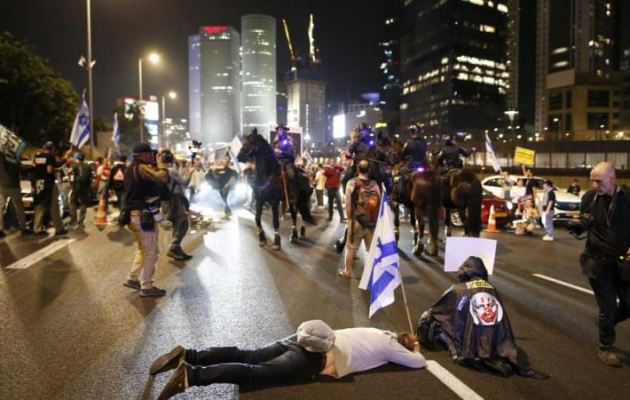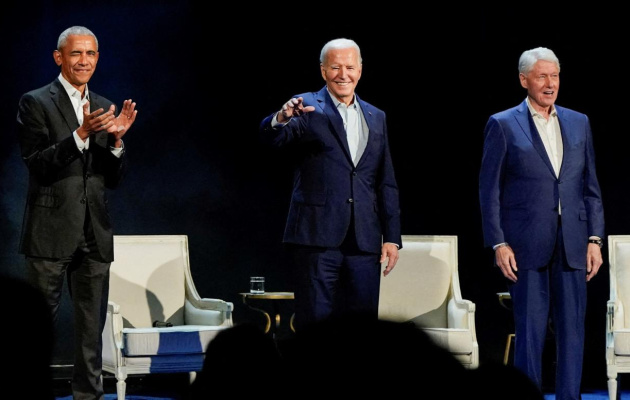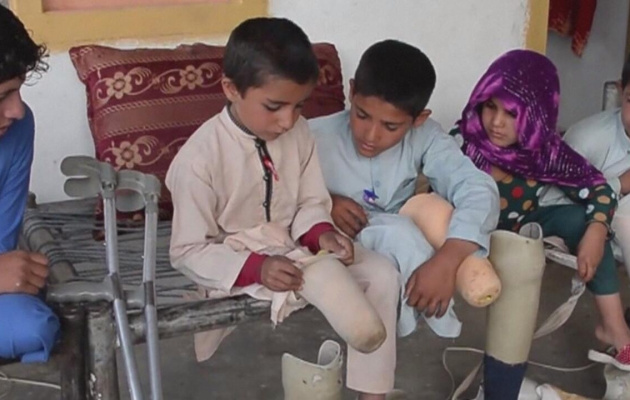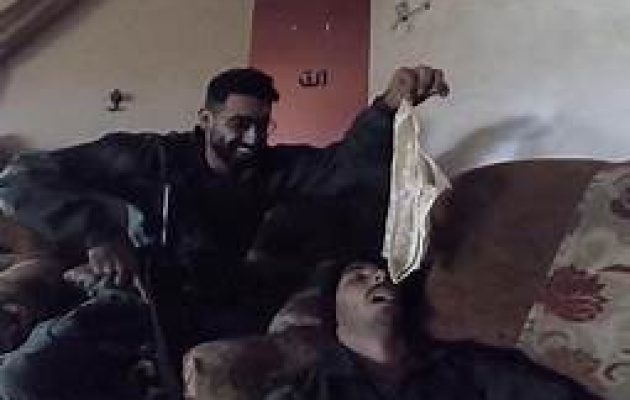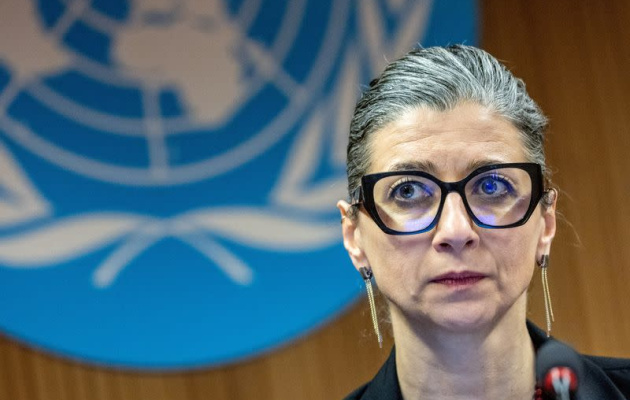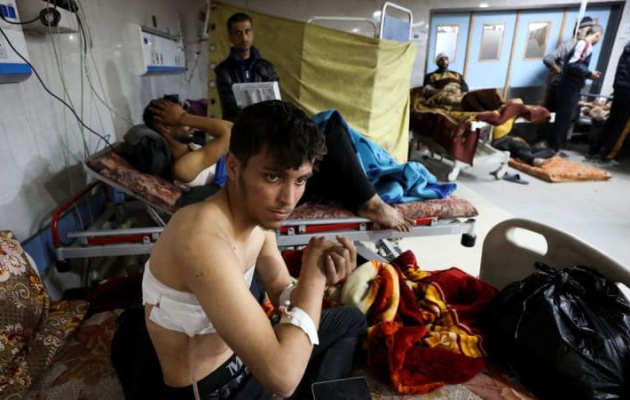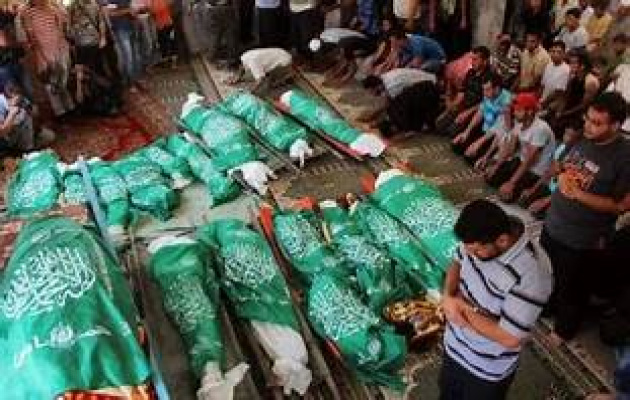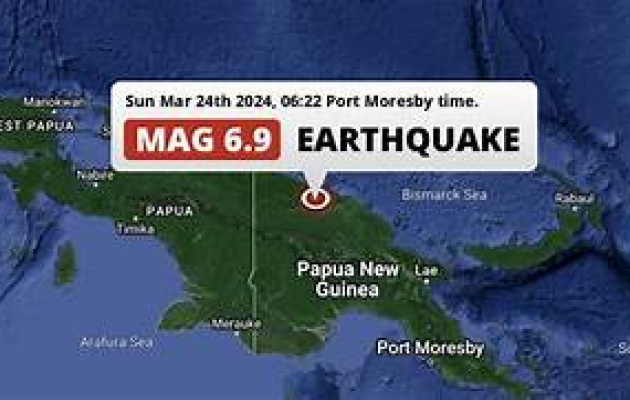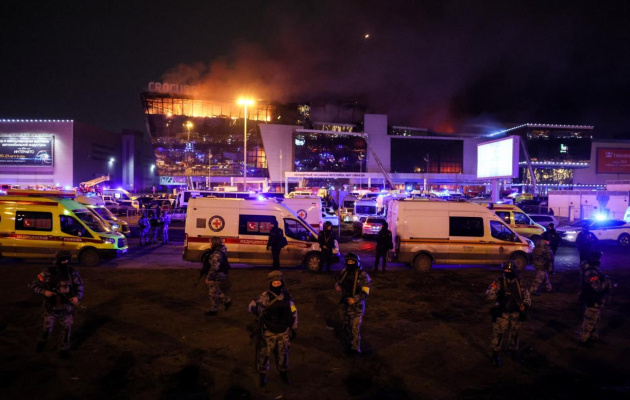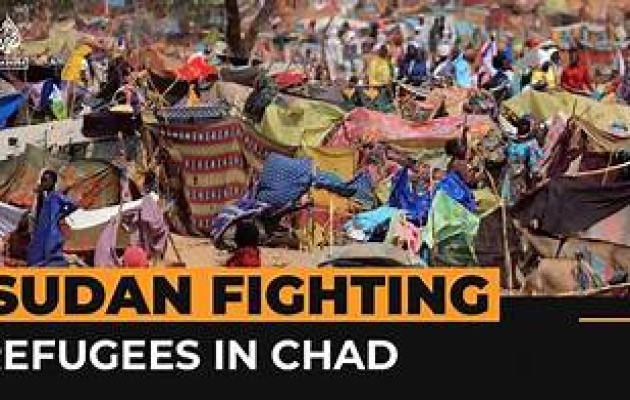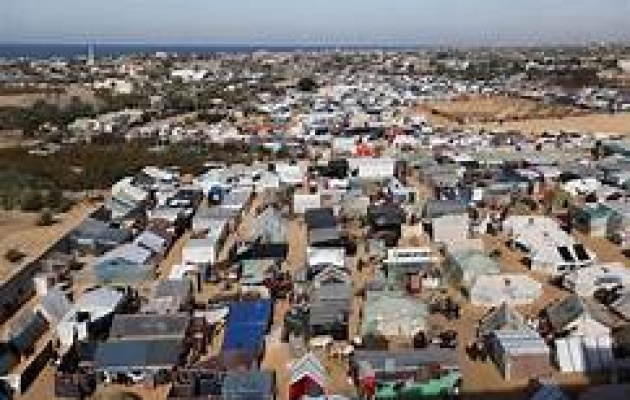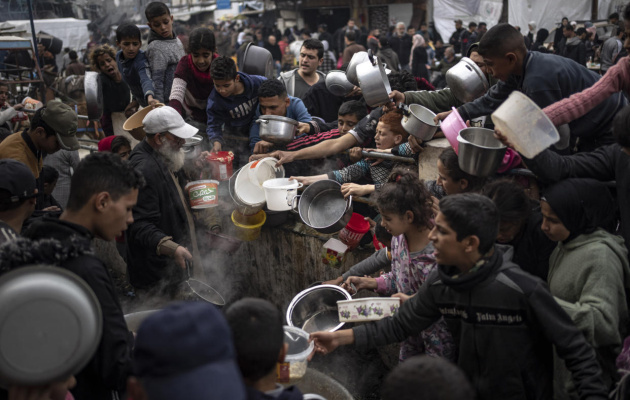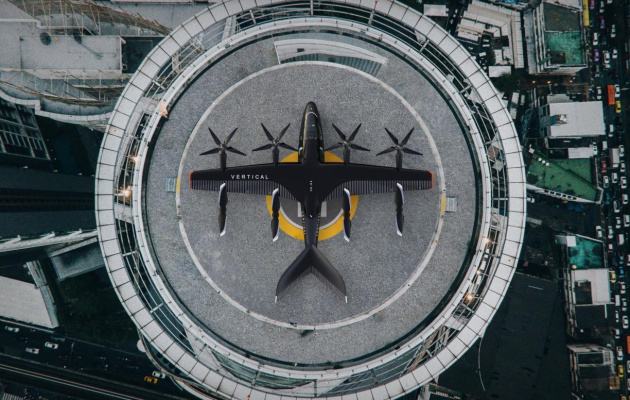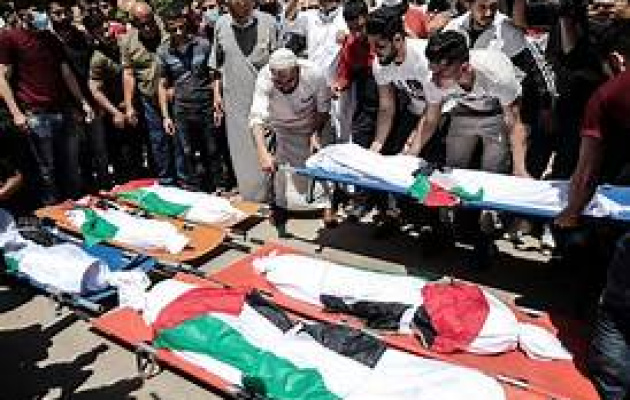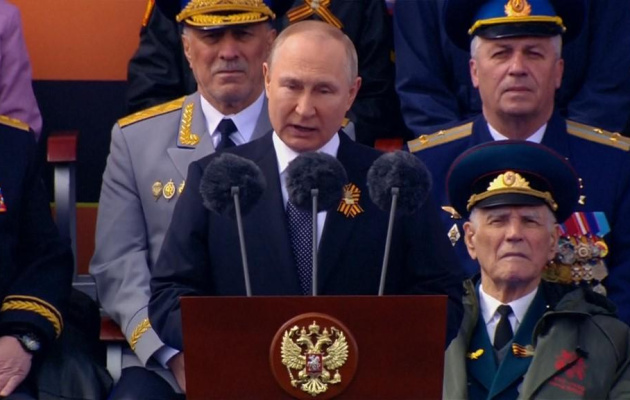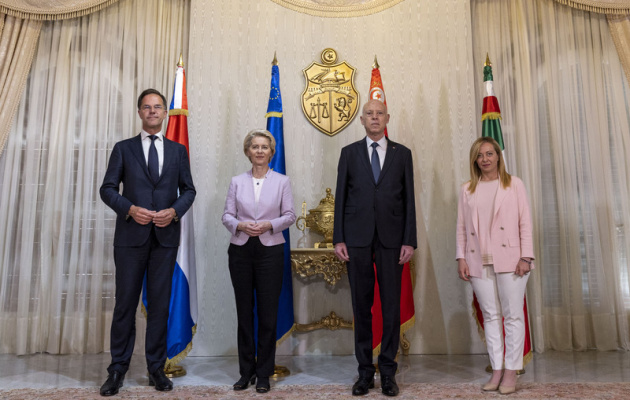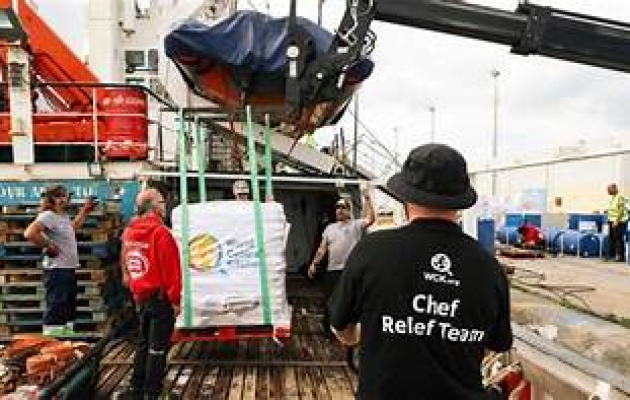Home
‘Plastic man’ has a cape and a superhero’s mission: cleaning up Senegal
- Details
- Written by northsouth
- Category: Africa
- Hits: 671
DAKAR - Dressed head to toe in plastic, Modou Fall is a familiar sight in Dakar. But however playful his costume, his goal couldn’t be more serious: ridding the capital of the scourge of plastic bags, writes the New York Times.
Modou Fall, who works to educate fellow Senegalese residents about the dangers of plastic trash, making his case at the annual marathon in Dakar, Senegal, in November.
As the marathon runners stretched and took their places on the starting line, one man stood out, dressed, as he was, in plastic from head to toe.
A multicoloured cape made entirely of plastic bags swept the sandy ground. A hat constructed out of plastic sunglasses was perched on his head.
But this man, Modou Fall, was not competing in the annual marathon held in Dakar, Senegal’s capital, each November. He was participating in a different kind of race: one to save the West African country from the scourge of plastic waste that clogged its waterways, marred its white beaches and constantly blew across its streets.
With the marathon drawing large crowds and a major media presence, he could not pass up the chance the race presented to promote his cause.
Waving the Senegalese flag and carrying a loudspeaker from which spilled songs cataloging the damage caused by plastic — “I like my country, I say no to plastic bags” — Mr. Fall swished in and around the runners in his long plastic cloak as the race began.
Those at the race who stopped him to ask for selfies fell into his well-laid and oft-used trap: He seized every opportunity to give them a gentle lecture about environmental issues.
After the last group of runners had left the starting area, Mr. Fall and his team of volunteers began to pick up the empty water bottles and plastic bags they had left behind.
For the foreign racers and tourists the marathon brought to Dakar, this might have been their first encounter with Mr. Fall, but for local residents, he’s a familiar presence known as “Plastic Man.”
Image
He can often be seen dancing through the streets dressed in a self-designed and ever-evolving costume made entirely of plastic, mostly bags collected from across the city. Pinned to his chest is a sign that reads NO PLASTIC BAGS. It’s a fight he takes very seriously.
His costume is modelled after the “Kankurang” — an imposing traditional figure deeply rooted in Senegalese culture who stalks sacred forests and wears a shroud of woven grasses. The Kankurang is considered a protector against bad spirits, and in charge of teaching communal values.
“I behave like the Kankurang,” Mr. Fall said in a recent interview. “I am an educator, a defender and a protector of the environment.”
While plastic waste poses a severe environmental problem around the globe, recent studies have found Senegal, despite its relatively small size, to be among the top countries polluting the world’s oceans with plastic. This is in part because it struggles to manage its waste, like many poorer countries, and it has a large population living on the coast.
In an effort to reduce its share of pollution, the Senegalese government implemented a ban on some plastic products in 2020, but the country has had a hard time enforcing it. Senegal, with a population of about 17 million, is projected to produce more than 700,000 metric tons of mismanaged plastic waste by 2025 if nothing is done, compared with about 337,000 metric tons in the United States.
Image
Mr. Fall, 48, has been fighting against plastic waste for most of his adult life. A tall, quietly charismatic former soldier, he first noticed plastic’s damaging effects in 1998 during his military service. He was stationed in rural eastern Senegal, home to many herding communities, where he saw their cows getting sick after consuming the fragments of plastic bags that littered the arid landscape.
The herders would slaughter their valuable animals before they inevitably died. This way, at least, eating their meat would not be haram, or forbidden by Islam.
After his military service, Mr. Fall sold T-shirts and life buoys in Dakar’s busy Sandaga market, where dozens of traders displayed all kind of goods, often packed in plastic. Plastic bags were cheap and plentiful, and shopkeepers would toss them into the street with abandon, unaware of how they could harm the environment.
For months, Mr. Fall tried to get his fellow shopkeepers to recognize the environmental threat posed by using so much plastic, and if they did use it, to dispose of it properly. But nobody listened. The market was a mess.
Fed up, one day he decided to try leading by example. He would clean up the entire market on his own.
“It took me 13 days, but I did it,” he said.
The plastic eventually came back. But he’d succeeded in making some of the stall holders think twice.
And stopping the rising tide of plastic became Mr. Fall’s obsession. “If it continues like this, the lives of future generations are in jeopardy,” he said.
In 2006, Mr. Fall used his life savings, just over $500, to found his association, Senegal Propre, or Clean Senegal.
He planted dozens of trees across the city and held community meetings to persuade people to stop buying throwaway plastic. He organized cleaning and tire recycling campaigns in Dakar’s lively neighborhoods, his waste pickers dodging taxi drivers and street vendors as they went.
With the plastic waste they collected, Clean Senegal made bricks, paving stones and public benches. Old tires became couches that they sold for about $430 apiece — money that went toward more environmental efforts like planting trees at schools.
Other street vendors began to see the point of what he was doing, and joined in.
“I used to throw plastic bags or cups in the street after use because I wasn’t aware of the dangers it could cause,” said Cheikh Seck, 31, who sells sunglasses and watches in Pikine, his home suburb in Dakar. “Plastic waste is a global concern, and I am more than happy to contribute to the fight that Modou started.”
The plastic waste clogging up the ocean waters off Dakar has damaged fishing stocks, further decreasing the incomes of Senegalese fishermen already struggling against their waters being overfished. Plastic can also poison agricultural land.
Mr. Fall’s message seems to be catching on. At November’s marathon, the third one he has cleaned up after, some of the runners now knew his favorite slogan and yelled it to him as they passed: “No to plastic waste!”
Following much of the marathon route, Mr. Fall and his team of 10 young volunteers in green shirts and gloves fanned out for their cleanup operation.
They picked up water bottles outside Dakar’s pioneering Museum of Black Civilizations, which showcases one of Africa’s largest art collections. They collected hundreds of plastic bags on the leafy campus of Cheikh Anta Diop University. They found plastic cups in the thrumming city center, known as Plateau, home to the presidential palace and many embassies.
One of the neighbourhoods they passed through was Medina, built by the French during the colonial period, and where Mr. Fall was born. After his father died when he was 4, Mr. Fall’s mother moved the family to the suburbs. As a single mother, she struggled to make ends meet running a restaurant, and Mr. Fall had to leave school after only six years of primary education to support the family by taking jobs in metalworking and house painting. After his mother died, he joined the army.
By mid-afternoon of the marathon day, Mr. Fall and his team were staggering under the weight of the plastic they had collected. A van drove up and they handed over hundreds of plastic bottles.
The team took a short break for lunch. But not Mr. Fall. He was still focused on his mission. There were five miles to go along the race route, and he set off, his plastic cape floating around him.
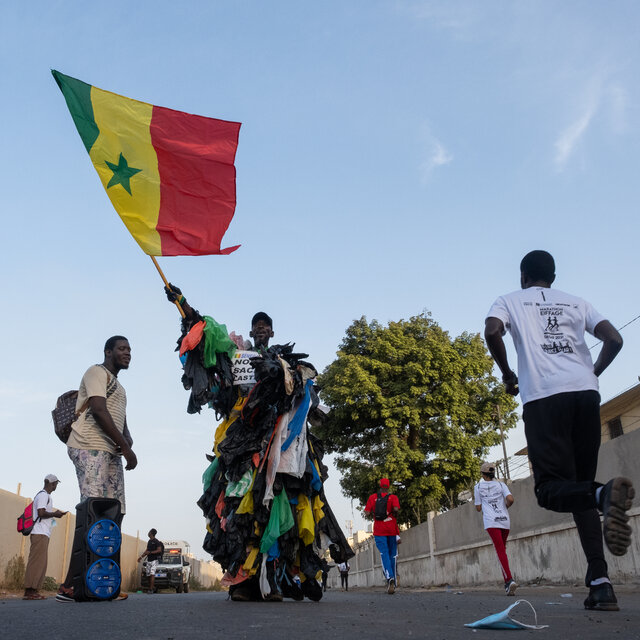
South Africa Parliament chamber ‘completely gutted’ by fire
- Details
- Written by northsouth
- Category: Africa
- Hits: 670
By GERALD IMRAY
CAPE TOWN, South Africa - Fire crews have continued to work at South Africa’s national Parliament complex in Cape Town on Monday after a major fire blazed through the buildings a day earlier, causing extensive damage.
The main chamber of the National Assembly was “completely gutted,” City of Cape Town safety and security official J.P. Smith said, and parts of the roof had collapsed.
“The entire Parliament complex is severely damaged, waterlogged and smoke damaged,” Smith said.
Firefighters were still working on “hotspots” in the National Assembly building more than 24 hours after the fire started, Cape Town Fire and Rescue Service spokesman Jermaine Carelse said. But the fire crews had been scaled back from around 70 firefighters Sunday to 20 by Monday morning.
Other buildings in the complex were also damaged by the fire that started early Sunday morning and spread from an old Parliament building that now houses offices to the National Assembly building.
With grand columns and stately white and red brick buildings, the Parliament complex has been at the center of South Africa’s history for more than 130 years. Some of the buildings have weathered British colonialism, the apartheid regime and South Africa’s transition to democracy under the presidency of Nelson Mandela.
A man arrested Sunday is being questioned in connection with the fire, police said. He is to appear in court on Tuesday and is expected to face charges of breaking and entering, theft and arson, while he will also be charged under South Africa’s National Key Points Act, a security law controlling access to places of national importance and government buildings.
The man had to be rescued from the fire on Sunday, according to South African media reports. Parliament was closed for the holidays and no injuries were reported.
Patricia de Lille, the Minister of Public Works and Infrastructure, said Sunday that someone had turned off a valve which prevented a fire sprinkler system from functioning.
She said an investigation into the cause of the fire has been taken over by the Hawks, a South African police unit that deals with serious and high-profile crimes.
Tutu: a man of empathy, moral ardor, and some silly jokes
- Details
- Written by northsouth
- Category: Africa
- Hits: 659
By CHRISTOPHER TORCHIA
PRETORIA - One Christmas Day in the 1980s, Desmond Tutu led a packed church service in Soweto, the Black Johannesburg township and fulcrum of protest against white racist rule in South Africa. An American family — mine — found standing room at the back.
We were among the few white people in the congregation and, as we shook hands with Tutu on the steps upon leaving, he made a joke. Something like: “So, it really is a white Christmas.”
Evoking the Irving Berlin song ’’White Christmas,” famously crooned by Bing Crosby, in tense, dusty Soweto was quintessential Tutu. He couldn’t resist a pun about race in an inflamed country suffering the agonies of apartheid, the system of white minority domination that was extinguished in 1994.
(Actually, every once in a very long while, it has snowed in Johannesburg, but certainly not at Christmas time, which falls in the Southern Hemisphere’s summer).
When Tutu died Sunday at age 90, he was remembered as a Nobel laureate, a spiritual compass, a champion of the anti-apartheid struggle who turned to other global causes after Nelson Mandela, another moral heavyweight, became South Africa’s first Black president. Barack Obama praised Tutu for fighting injustice wherever he saw it.
But the former U.S. president also recalled the activist’s ″impish sense of humor.″ And it is that Desmond Tutu — the funny, kind, gracious man behind the icon — whom I and so many others recall.
To see Tutu up close was to bask in his rollercoaster laughter, to revel as his eyes would widen theatrically, to luxuriate in his pristinely enunciated remarks, and to come away infused with the man’s joy and warmth. If he had a chance to dance, usually in church, he was on his feet — with the help of a cane in later years, as he grew more frail.
He seemed to embody the best of what it is to be human, at a granular level. The small generosities, the willingness to listen, the empathy, lightening the mood with … let’s face it, some pretty silly jokes.
He kept that up through grim times in South Africa, showing anger and frustration too at dehumanizing state policies, the violence of white-controlled security forces and the killing within Black communities as apartheid, a scourge that he described as ’’evil,” played out bitterly.
Not everyone was a fan. His moral ardor ran up against realpolitik. His notion of the ″rainbow nation,″ an idealized vision of racial tolerance, is at odds with the social and economic imbalances of South Africa today.
But he always reached out, always looked for and found the humanity in people. In advance of a small service at St. George’s Cathedral in 2015, participants were asked to send photos of themselves; I watched as Tutu went around the congregation, asking each person to say a little about themselves.
I was a boy on that Christmas Day when Tutu riffed on Bing Crosby, and my father was reporting for The Associated Press in South Africa. In 1989, my parents moved to Stockholm. A few months before they departed, a postcard arrived with Tutu’s scrawl on the back.
’’Go well. Thanks for your splendid service,” he wrote. “Will miss you. Will certainly try to see you in Sweden. God bless you.”
In time, I became a journalist and also worked for the AP in South Africa, sometimes covering Tutu’s post-apartheid commentary on corruption and other challenges, as well as his hospitalizations for the prostate cancer that afflicted him for nearly a quarter century.
I would recall the one time he visited our Johannesburg home for dinner. He didn’t stay long. He was charming, easygoing.
Afterwards, he sent us another postcard. On the front was an elephant; on the back was something that could be taken both as a bread-and-butter note and as an unintended valedictory from a remarkable man who, even at age 90, left the world too soon.
“Just an inadequate note to thank you very much for your kind hospitality,” he wrote. “I enjoyed myself and was sorry to have to leave early. God bless you.”
It was signed, simply, “Desmond.”
South Africa’s last apartheid president F. W. de Klerk dies
- Details
- Written by northsouth
- Category: Africa
- Hits: 743
By ANDREW MELDRUM
JOHANNESBURG — F.W. de Klerk, who shared the Nobel Peace Prize with Nelson Mandela and as South Africa’s last apartheid president oversaw the end of the country’s white minority rule, has died at the age of 85.
De Klerk died after a battle against cancer at his home in the Fresnaye area of Cape Town, a spokesman for the F.W. de Klerk Foundation confirmed on Thursday.
De Klerk was a controversial figure in South Africa where many blamed him for violence against Black South Africans and anti-apartheid activists during his time in power, while some whites saw his efforts to end apartheid as a betrayal.
It was de Klerk who in a speech to South Africa’s parliament on Feb. 2, 1990, announced that Mandela would be released from prison after 27 years. The announcement electrified a country that for decades had been scorned and sanctioned by much of the world for its brutal system of racial discrimination known as apartheid.
With South Africa’s isolation deepening and its once-solid economy deteriorating, de Klerk, who had been elected president just five months earlier, also announced in the same speech the lifting of a ban on the African National Congress and other anti-apartheid political groups.
Amid gasps, several members of parliament members left the chamber as he spoke.
Nine days later, Mandela walked free.
Four years after that, Mandela was elected the country’s first Black president as Black South Africans voted for the first time.
By then, de Klerk and Mandela had been awarded the Nobel Peace Prize in 1993 for their often-tense cooperation in moving South Africa away from institutionalized racism and toward democracy.
Main News
latest news
- Israel gave no evidence UNRWA staff linked to ‘terrorism’: Colonna report
- UK criticised for arming Israel
- India's Modi accused of anti-Muslim campaign hate speech
- What is Project Nimbus, and why are Google workers protesting Israel deal?
- West Africa’s Sahel becoming a drug trafficking corridor, UN warns
- ‘Forced’ move: Rwandans grapple with own fears over UK asylum seeker plan
- Angola: Proposed Security Law Threatens Rights
- UK’s Obscene Obsession, HRW
- Sweden urges EU to target Russian gas and oil in new sanctions
- Pro-Palestine protesters arrested on Yale campus
- Kennedy’s presidential bid saps more support from Trump than Biden, poll
- Columbia classes go virtual as tensions mount over Israel-Gaza conflict
- Russia warns of direct clash with West over Ukraine
- African leaders call for rethink on tackling violent extremism
- Israeli troops storm back into eastern Khan Younis
- Blinken denies US applies double standard to Israeli rights abuses
- Israel indicts sister of Hamas leader Haniyeh on terrorism incitement
- Dramatic reductions in primary forest loss in Brazil and Colombia
- Nature-based solutions for flood management in Asia and the Pacific
- Global aid up in 2023 with more support to Ukraine and humanitarian needs
- US Blocks UN Membership for Palestine and Congress Palestine’s Freedom of Speech
- EU plan to boost mobility for young Brits quickly shot down
- Leaked draft of BBA document casts doubt on Hayes and Palombo Court of Appeal ruling
- Global military spending surges amid war, rising tensions and insecurity
- Cocoa prices soar as weather hurt production
Europe
UK criticised for arming Israel
UK’s Obscene Obsession, HRW
Sweden urges EU to target Russian gas and oil in new sanctions
Russia warns of direct clash with West over Ukraine
Global aid up in 2023 with more support to Ukraine and humanitarian needs
EU plan to boost mobility for young Brits quickly shot down
Leaked draft of BBA document casts doubt on Hayes and Palombo Court of Appeal ruling
Italy to invite African, South American leaders to G7 summit
Stolen Baroque painting returned to UK with support from Eurojust
EURIBO founders speak out against Hayes & Palombo Court of Appeal judgment
How worried are Britons about a Third World War?
‘Russia doesn’t care’: Sweden sounds alarm over unsafe oil fleet
Britain's most expensive cup of coffee is £265
MERA25 condemns Germany’s ban on Yanis Varoufakis
Germany confirms collaboration with genocide by Shutting down Palestine Conference
Germany buries evidence of complicity in Gaza genocide: Nicaragua exposes it
EU lobby register not properly enforced, warns watchdog
At least 17 killed in Russian strike in Kharkiv
Russian missiles slam into a Ukrainian city and kill 8 people
UK inflation falls by less than forecast to 3.2%
Undersea ‘hybrid warfare’ threatens security of 1bn, Nato
Rwanda scheme ‘could cost UK nearly £5bn in first five years’ for 30,000 migrants
Attendance down at PM Eid party amid reports of boycott over Gaza
RAF jets downed attack drones in Iranian assault on Israel, Sunak
Poland: Vote to amend law step towards access to safe and legal abortion
Asia
India's Modi accused of anti-Muslim campaign hate speech
Nature-based solutions for flood management in Asia and the Pacific
Gunmen kill 7 customs officials in western Pakistan in two attacks
In Modi’s India, opponents and journalists squeezed ahead of election
Vietnamese billionaire sentenced to death for $44 billion fraud
People blown from apartments as typhoon-like winds ravage southern China
North Korea says it tested a new hypersonic intermediate-range missile
Strongest earthquake in 25 years rocks Taiwan, killing 9 people
India rejects China's renaming of 30 places in Himalayan border state
An Indian court sends opposition leader, Arvind Kejriwal, to jail until April 15
Pakistan court grants Imran Khan appeal of graft conviction, sentence suspended
India's Modi questions rival Congress about island ceded to Sri Lanka
India opposition unites over pre-election arrest, blames PM Modi
India advances controversial anti-Muslim citizenship law
Philippines' Marcos vows countermeasures in response to Chinese 'attacks'
Pakistan’s jurists accuse intelligence agency ISI of intimidation
India: Authorities Revoke Visa Privileges of Diaspora Critics
China vows to safeguard its territorial integrity after South China Sea incident
At least 40 fires set in night of arson across Thailand's south
Vietnam's president resigns, raising questions over stability
India’s new citizenship law excludes Muslims. Why?
Chinese Nobel-winning author targeted in patriotic lawsuit
Chinese military to boost strategic capabilities in areas such as AI, unmanned tech
Indonesia floods, landslide kill 19, with seven missing
China discovers oil field of proven reserve of 102 million tons in South China Sea
Africa
West Africa’s Sahel becoming a drug trafficking corridor, UN warns
‘Forced’ move: Rwandans grapple with own fears over UK asylum seeker plan
Angola: Proposed Security Law Threatens Rights
African leaders call for rethink on tackling violent extremism
Cocoa prices soar as weather hurt production
US military will begin plans to withdraw troops from Niger
OPEC woos Namibia as country prepares to produce oil from 20230
Big firms buying Kenya’s carbon credits revealed
Why Togo’s politicians disagree over constitutional change
Nigeria is targeting 60% jump in revenues
Africa’s millionaires are under threat
$900m needed by Zambia to deal with the drought
Presidential election campaign kicks off
Senegal’s new government targets economic sovereignty
Nigeria’s inflation rising sharply
South Africa’s regulator takes a chance on crypto
Kyiv opens string of new Africa embassies, in diplomatic push
Nigeria strikes deal with Shell to supply $3.8bn methanol project
Deadly heat in West Africa warns of climate change, report
10 African countries with the strongest currencies in 2024
World paid little attention to Sudan’s war for a year
Global community response to Sudan conflict remains woefully inadequate
Tanzania is wooing Chinese tourists with a new documentary
The rate of growth in new and active mobile money accounts in 2023 slowed down
Ethiopia bets on property ownership offer to attract foreign investors
Americas
What is Project Nimbus, and why are Google workers protesting Israel deal?
Pro-Palestine protesters arrested on Yale campus
Kennedy’s presidential bid saps more support from Trump than Biden, poll
Columbia classes go virtual as tensions mount over Israel-Gaza conflict
Blinken denies US applies double standard to Israeli rights abuses
Dramatic reductions in primary forest loss in Brazil and Colombia
US Blocks UN Membership for Palestine and Congress Palestine’s Freedom of Speech
US vetoes Palestinian request for full UN membership
Google sacks 28 employees over Israel protest
Pentagon Recognizes “Officially” that Israel is a Nuclear Power. Declassified Document
IMF: World economy ‘resilient’ but conflict risks food and energy price hikes
Biden agrees to provide $6.4 billion to Samsung for making computer chips in Texas
Pope Francis sides with Peruvian villagers
Multiple people shot during Eid festival in Philadelphia
Biden to consider Australia's request to drop prosecution of Wikileaks founder Assange
Brazil: New IFAD-funded project to promote payment for environmental services
US flags Kenya over bribes, extortion in public tenders
At least 241 people have died in El Salvador’s prisons during the ‘war on gangs’
World Central Kitchen founder says staff 'deliberately targeted' while delivering aid
Forbes’ rich list gains $2 trillion as Taylor Swift and Altman become billionaires
World Central Kitchen is saving lives with food but paying a price in blood
Famine 'quite possibly' in some areas of north Gaza, US official
Pro-Palestine protesters disrupt Biden’s star-studded fundraiser
Most Americans disapprove of Israel’s actions in Gaza: Poll
US and EU breaking taboos to restrain Israel
Australia & Pacific
Australia’s 2024 National Defence Strategy
Sydney rocked by second mass stabbing as knifeman attacks bishop
Three dead, 1,000 homes destroyed in Papua New Guinea quake
Australia and UK sign defense and security treaty
Australia tightens student visa rules as migration hits record high
Global food crisis and the effects of climate change need urgent action, IFAD
Indonesia, Australia to sign defence pact within months
Australia to ban doxxing after pro-Palestinians publish information about hundreds of Jews
Australia launches inquiry into why Cabinet documents relating to Iraq war remain secret
Australia says AI will help track Chinese submarines under new Aukus plan
China warns Australia to act prudently in naval operations in South China Sea
Christopher Luxon sworn in as new prime minister of New Zealand
Australian Intelligence Report Identifies China as Major Backer of Cyber Crime
Thousands in Australia join pro-Palestinian march over Gaza
Australia rejects Indigenous referendum in setback for reconciliation
Qatar Airways CEO says Australian decision to block flights ‘very unfair’
Moroccan Othmane El Goumri wins Sydney marathon
More than half of Australians oppose Indigenous panel in constitution, poll
Three US Marines die in 'tragic' Australia helicopter crash
Australian bus carrying wedding guests rolls over killing 10 and injuring 25
Guam, where America’s next war may begin
Women most victims of islamophobia in Australia
Time to step up investments in rural communities in the Pacific islands
Australia’s ‘quiet diplomacy’ approach to human rights in India has failed
Public support high in Australia and NZ to accept more Rohingya
MENA
Israel gave no evidence UNRWA staff linked to ‘terrorism’: Colonna report
Israeli troops storm back into eastern Khan Younis
Israel indicts sister of Hamas leader Haniyeh on terrorism incitement
West Bank village counts losses after settler attack
Thousands of Israelis join anti-government protests
Bodies found in bags marked in Hebrew at destroyed Nasser Hospital
Aid group able to deliver food to north Gaza for first time since October
13 children from same family killed in strikes
Satellite image analyzed by AP shows damage after Iranian attack on Israeli desert air base
$2.8 billion appeal for three million people in Gaza, West Bank
Germany lodges complaint after report of Netanyahu-Baerbock spat
What we know so far about Israel’s strike on Iran
Netanyahu has done what the world warned him not to
Tunisia jails journalist Mohamed Boughalleb for six months
Reuters' Med Salem wins 2024 World Press Photo of the Year award
Flooded UAE counts cost of epic rainstorm
Majority of Gaza’s frozen embryos destroyed in Israeli strike
Israel speeds up settlement-building in East Jerusalem since Gaza war
EasyJet cancels all flights to Israel for six months
Iran shuts nuclear facilities amid fears of Israeli attack
Iran says any action against its interests will get a severe response
Israel quiet on next move against Iran
Why has Iran attacked Israel?
Hamas leader Ismail Haniyeh says three sons killed in Gaza strike
Israel's Gaza withdrawal hints at what comes next
Videos
-
Future of car-plane, see it to believe it
-
Mehdi Hasan: Islam is a peaceful religion
-
Python swallows antelope whole in under an hour
-
Sangoku dance
-
flying 3 kites wonder!
-
Korea has talent
-
Paul Potts sings Nessun Dorma
-
Susan Boyle - Britain's Got Talent
-
Twist and Pulse - Britain's Got Talent
-
Shaheen Jafargholi (HQ) Britain's Got Talent
High-Quality clip of 12-year-old singer Shaheen Jafargholi auditioning on Britain's Got Talent 2009. First he sings Valerie by The Zutons, as performed by Amy Winehouse, but, after Simon interrupts him and asks for a different song, he just blew everyone away. -
David Calvo juggles and solves Rubik's Cubes
-
Outdoor 'bubble pod' hotel unveiled


